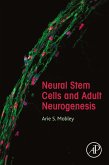Body, Brain, Behavior: Three Views and a Conversation describes brain research on the frontiers, with a particular emphasis on the relationship between the brain and its development and evolution, peripheral organs, and other brains in communication. The book expands current views of neuroscience by illustrating the integration of these disciplines. By using a novel method of conversations between 3 scientists of different disciplines, cellular, endocrine, developmental, and social processes are seamlessly woven into topics that relate to contemporary living in health and disease. This book is a critical read for anyone who wants to become familiar with the inner workings of the nervous system and its intimate connections to the universe of contemporary life issues.
- Introduces the reader to basic principles of brain research and integrative physiology
- Dissects the dispute between Cajal and Golgi regarding the state-of-the art in the neurosciences and immunobiology
- Provides a short history of brain research and metabolism
- Discusses contemporary approaches in the neurosciences, along with the importance of technological versus conceptual advances
- Examines the dynamics of social connections between two brains, integrating mechanisms of Body/Brain/Behavior-to-Body/Brain/Behavior between subjects
Dieser Download kann aus rechtlichen Gründen nur mit Rechnungsadresse in A, B, BG, CY, CZ, D, DK, EW, E, FIN, F, GR, HR, H, IRL, I, LT, L, LR, M, NL, PL, P, R, S, SLO, SK ausgeliefert werden.









